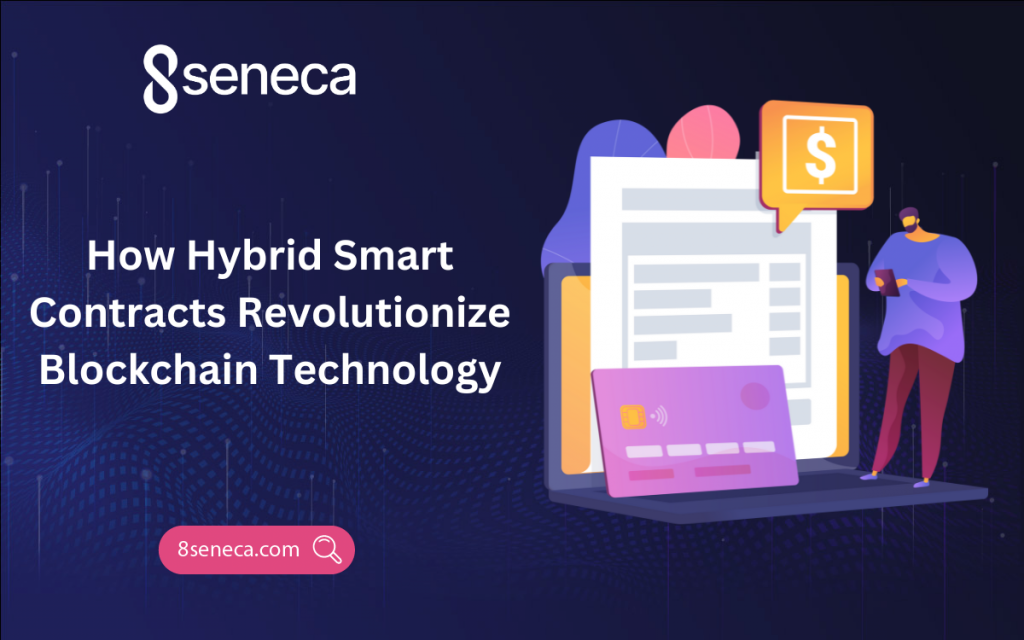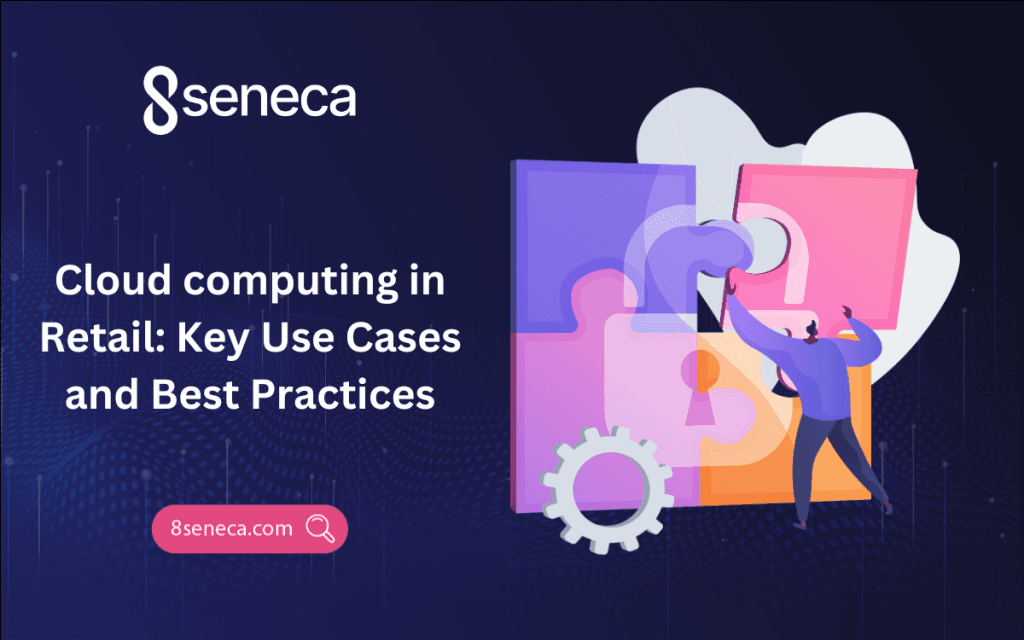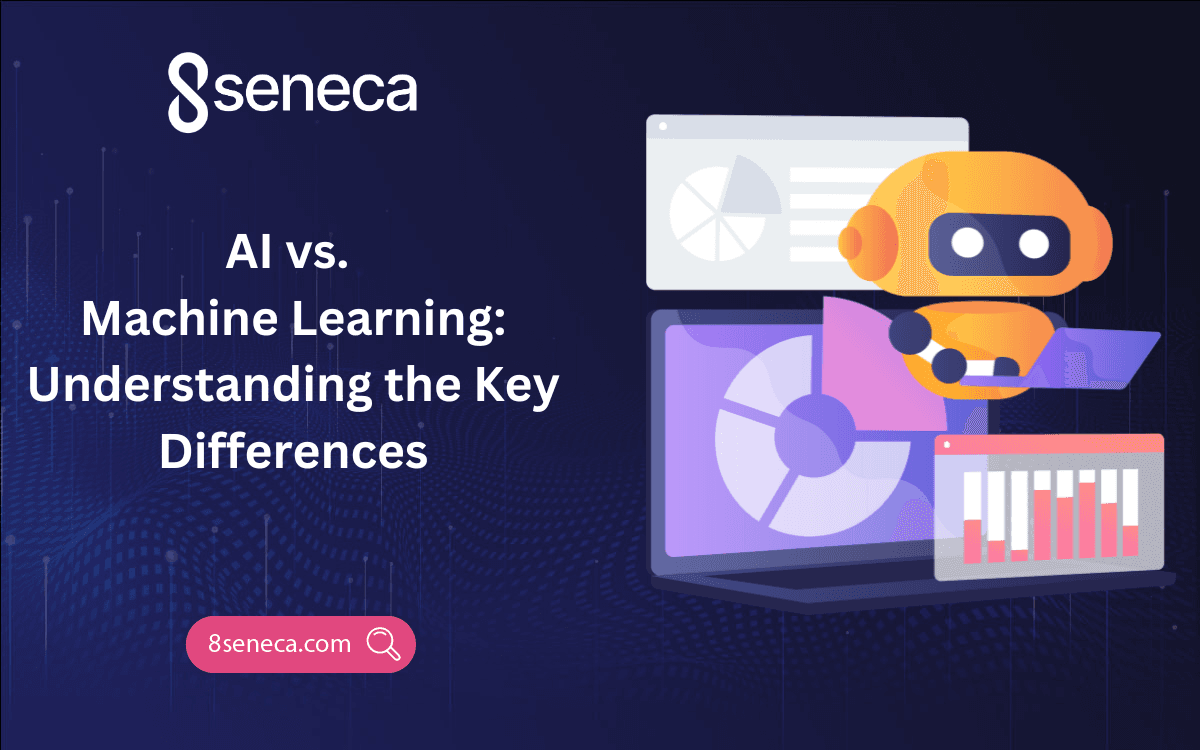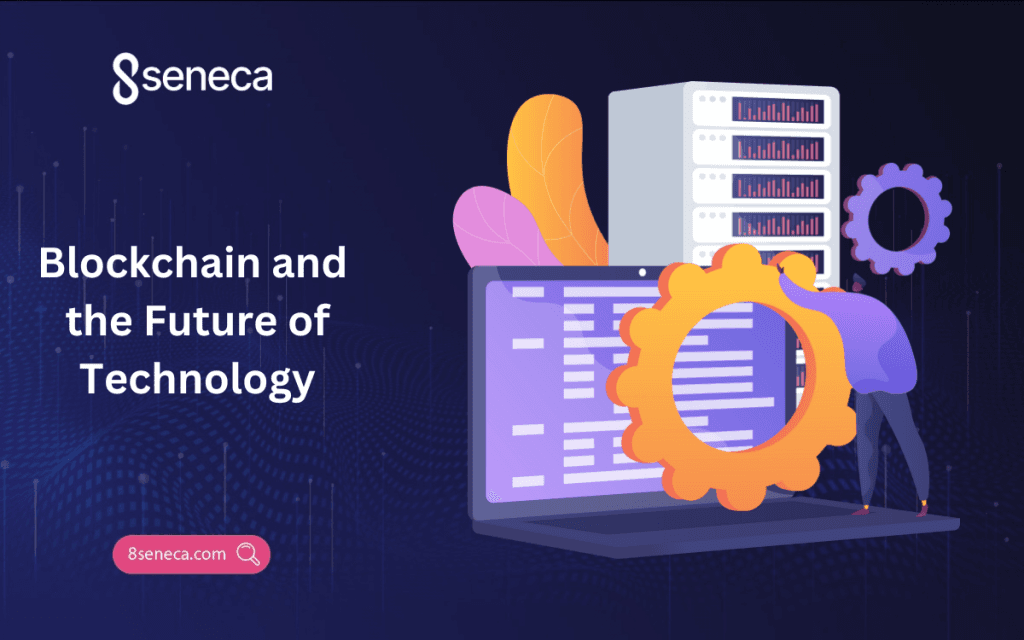How Hybrid Smart Contracts Revolutionize Blockchain Technology
Discover what hybrid smart contracts are and how they are revolutionizing blockchain technology, including key benefits and challenges.

The tech industry has experienced a significant transformation thanks to blockchain and its promise of decentralization, transparency, and security. Over time, blockchain expanded its horizons, admitting more applications, such as cryptocurrencies and hybrid smart contracts. And as time goes by, blockchain receives recognition and attention from businesses and institutions.
The most noticeable feature in the blockchain evolution is hybrid smart contract. Hybrid smart contract combine the strengths of on-chain execution with off-chain data and computations. This powerful combination creates a powerful synergy and enhances its overall functions.
These contracts are not adding anything new but revolutionizing blockchain technology. It aims to enhance collaboration across numerous industries, from finance to healthcare.
What Are Hybrid Smart Contracts?
A hybrid smart contract is an advanced form of smart contract that combines on-chain code with off-chain data and computations. This combination is facilitated by decentralized oracle networks (DONs). A hybrid smart contract work in the blockchain. It can interact with external data, making them more versatile and capable of handling complex cases.
Oracles is a multinational computer technology corporation. It offers many business-oriented products and services. Furthermore, it plays a crucial role in hybrid smart contract because it is a bridge between blockchain and the outside world. It also provides crucial data that makes hybrid contracts powerful and effective.
Key Benefits of Hybrid Smart Contracts
Enhanced Functionality
These contracts stand out because they can access off-chain data, such as market prices, weather conditions, and other real-world updates. This ability allows them to execute more complex and dynamic actions compared to traditional smart contracts that are restricted to on-chain information. For example, a DeFi application can use real-time financial data to automatically adjust lending rates, or an insurance smart contract can trigger payouts based on weather data confirming specific conditions. By incorporating external data, hybrid contracts become far more adaptable, making them valuable for a wide range of real-world applications.
Scalability and Cost Efficiency
Hybrid smart contracts improve scalability and reduce costs by offloading complex computations to off-chain systems. On-chain processes can be expensive and slow, particularly when handling large amounts of data or complex calculations. By shifting these tasks off-chain, hybrid contracts decrease the computational burden on the blockchain, leading to faster transaction times and lower costs. This approach not only reduces congestion but also makes blockchain technology more accessible and practical for large-scale use cases, enhancing overall efficiency.
Security and Trust
Security is a crucial benefit of hybrid smart contracts, which combine blockchain’s decentralized security with reliable off-chain data inputs from oracles. Oracles provide verified, tamper-proof data that smart contracts can trust to execute correctly. This integration ensures that smart contracts operate based on accurate, real-world information, maintaining the integrity and trustworthiness of the system. By relying on secure oracles, hybrid contracts effectively bridge the gap between blockchain security and real-world data, enhancing the reliability of automated processes across various industries.
Real-World Applications
- Decentralized Finance (DeFi): Hybrid smart contracts are widely used in DeFi to automate financial services. For example, they enable automated lending and borrowing based on real-time data, such as interest rates and asset prices. This allows for more accurate, efficient, and transparent financial transactions without the need for traditional banks.
- Supply Chain: In supply chain management, these contracts help track goods from production to delivery. They can verify conditions like temperature or location through real-world data, ensuring products meet quality standards at every step. This transparency improves trust and efficiency across the supply chain.
- Insurance: They can automate insurance payouts by connecting to real-world data. For example, if a weather oracle detects extreme conditions, a smart contract can automatically trigger an insurance payout to the policyholder. This removes the need for manual claims processing, making insurance quicker and more reliable.
Challenges
Data Accuracy and Security
Hybrid smart contracts rely on off-chain data, which can sometimes be inaccurate or manipulated. This poses a risk because if the data is wrong, the contract’s actions could be incorrect. Ensuring that the data fed into smart contracts is accurate and secure is a major challenge.
Reliability of Oracles
Oracles are crucial for hybrid smart contracts, but they must be secure and trustworthy. If an oracle is compromised, it can provide false data, which could lead to wrong decisions by the contract. Finding and maintaining reliable oracles is essential for the safe operation of hybrid smart contracts.
Conclusion
Hybrid smart contracts are revolutionizing blockchain by merging on-chain and off-chain systems. They offer enhanced functionality, cost efficiency, and improved security, making them a powerful tool in various industries like finance, supply chain, and insurance.
As technology evolves, hybrid smart contracts are expected to grow and improve. With advancements in oracle solutions and data security, their use cases will expand, unlocking even more potential in the world of blockchain. Hybrid smart contracts are not just a trend; they are a key step toward a more connected and automated future.
Related articles

Oct 23, 2024
Read more
The Benefits of Machine Learning
Learn and explore how machine learning drives innovation, efficiency, and smarter decision-making in today’s tech-driven world.

Oct 07, 2024
Read more
Cloud Computing in Retail: Key Use Cases and Best Practices
Cloud computing helps retailers optimize operations, streamline inventory, and improve decision-making with real-time data.

Sep 25, 2024
Read more
AI vs. Machine Learning: Understanding the Key Differences
Learn the differences between AI and ML, their impact on business, and how to leverage them effectively in business.

Sep 09, 2024
Read more
Understanding SLAs in Cybersecurity
SLAs in cybersecurity help businesses stay safe by providing quick responses to threats and outlining protections between parties.

Aug 14, 2024
Read more
Blockchain and the Future of Technology
Explore how blockchain technology is revolutionizing industries like finance, healthcare, and supply chain management.

Aug 08, 2024
Read more
Cybersecurity: Protecting Our Digital World
The importance of cybersecurity in today's digital age. Learn tips to protect your data and systems from digital threats.
